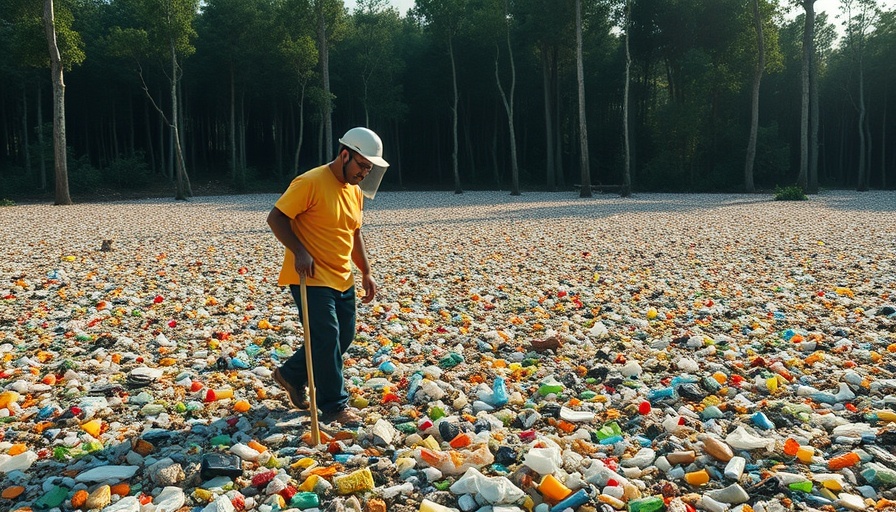
The Plastic Problem: Understanding the Risks to Health
Recent studies have underscored a grim reality: the pervasive use of plastic poses a significant threat to human health. As scientists gather for pivotal discussions at the United Nations about global plastic pollution, medical professionals are sounding alarms regarding the health implications of plastic exposure. From toxic compounds leaching into food and drink to microplastics infiltrating our bodies, the dangers appear more profound than previously believed.
A Growing Health Crisis: What the Experts Say
The concerns raised by scientists are numerous. Research indicates that certain chemicals found in plastic can disrupt hormones, potentially leading to reproductive issues and an increased risk of cancers. Dr. Ana Thompson, a health researcher at Stanford University, stated, "Every aspect of our environment reflects a troubling relationship with plastic. Not only are we surrounded by it, but it’s invading our biological systems in ways we cannot overlook. This crisis requires immediate governmental and corporate action to reduce exposure." This input broadens the understanding of the health risks posed by plastic waste, highlighting the urgent need for systemic change.
From Waste to Health Risk: The Lifecycle of Plastic
The lifecycle of plastic—from production to disposal—contributes to health hazards. Plastics are manufactured using myriad chemicals, many of which are known toxins. When plastics are thrown away or incinerated, they can release harmful emissions into the air and toxins into the soil and water. This contamination seeps into our food chain, raising concerns about both environmental and public health. The conversation around corporate responsibility in this sector is becoming increasingly relevant, with advocacy for sustainable practices gaining momentum.
Global Response to Plastic Pollution: Opportunities for Change
The upcoming UN talks present a job not just for policymakers but also for corporate leaders and innovators in the tech industry. It’s essential to explore how Silicon Valley startups can lead in developing sustainable alternatives to plastics. Emerging ventures focusing on biodegradable materials and new recycling technologies could address some of the pressing issues linked to plastic waste. This entrepreneurial spirit in the Bay Area, often seen as a hub for innovation, could be crucial in mitigating the health impacts of plastic pollution.
Local Business Spotlight: Sustainable Practices in the Bay Area
Many Bay Area companies are proactively seeking solutions. Local businesses, such as those in the food and beverage sector, are experimenting with packaging made from plant-based materials. With increasing consumer awareness about health and sustainability, these businesses are witnessing a paradigm shift: healthier products paired with eco-friendly practices boost their marketability and public image. As the Bay Area reinforces its position within the tech and sustainability conversation, corporate social responsibility becomes more critical than ever.
Call to Action: Be Part of the Solution
The insights shared at the UN talks will shape policies affecting all of us. As consumers and stakeholders, consider supporting businesses that prioritize sustainability and transparency. Advocate for regulations that limit plastic use, and explore ways to reduce plastic waste in your own life. By making informed choices, we can collectively drive a movement towards a healthier planet.
 Add Row
Add Row  Add
Add 



Write A Comment